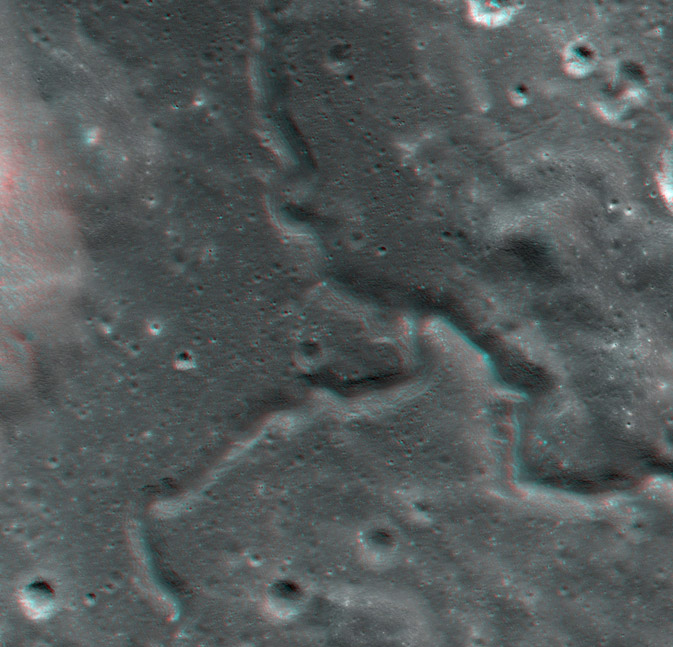Difference between revisions of "September 27, 2012"
| Line 13: | Line 13: | ||
Rükl plate ?<br /> | Rükl plate ?<br /> | ||
<br /> | <br /> | ||
| + | <p><b>Yesterday's LPOD:</b> [[September 26, 2012|Ever New Moon]] </p> | ||
| + | <p><b>Tomorrow's LPOD:</b> [[September 28, 2012|Polar Geography*]] </p> | ||
<hr /> | <hr /> | ||
| − | |||
| − | |||
| − | |||
| − | |||
| − | |||
| − | |||
| − | |||
| − | |||
| − | |||
| − | |||
| − | |||
| − | |||
Revision as of 11:24, 7 February 2015
Squiggley Depths

LRO NAC anaglyph from NASA/Goddard/Arizona State University
Get out your red-blue glasses to explore the depths and twists of this small rille complex. In the NASA press release this 3-D view is labelled Alpes Sinuous Rille, and the caption mentions that Apollo 15 astronauts landed on the edge of a Hadley Rille. I can't identify where this rille is because it was made from a stereo pair of NAC images so the area covered may be only 1-2 km wide; I am sure LPOD readers will find exactly where it is. The news accompanying the release of this image and three others is that they were made automatically. A team from Arizona State University and from the University of Arizona - two powerhouse planetary science institutions - devised the process to create these anaglyphs. As they are produced the anaglyphs will appear on the LRO website, but I don't see any there yet.
Chuck Wood
PS - I can't see stereo so have no real idea if this image has useful stereo
Related Links
Rükl plate ?
Yesterday's LPOD: Ever New Moon
Tomorrow's LPOD: Polar Geography*



